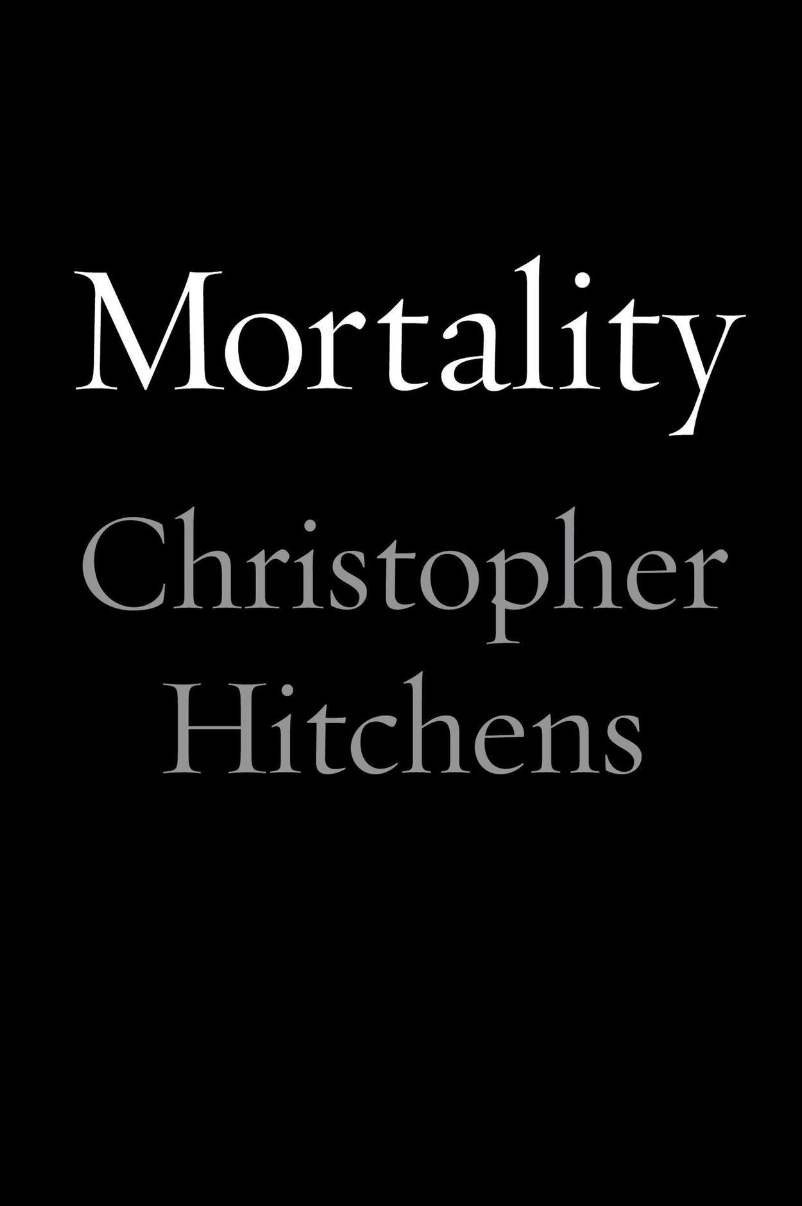Mortality (Christopher Hitchens)

Quotes and passages from the book mortality by Christopher Hitchens:
- … taking me from the country of the well across the stark frontier that marks off the land of malady.
- I managed to pull off both gigs without anyone noticing anything amiss, though I did vomit two times, with an extraordinary combination of accuracy, neatness, violence, and profusion, just before each show. This is what citizens of the sick country do while they are still hopelessly clinging to their old domicile.
- But irony is my business and I just can’t see any ironies here: To the dumb question “Why me?” the cosmos barely bothers to return the reply: Why not?
- Allow me to inform you, though, that when you sit in a room with a set of other finalists, and kindly people bring a huge transparent bag of poison and plug it into your arm, and you either read or don’t read a book while the venom sack gradually empties itself into your system, the image of the ardent soldier or revolutionary is the very last one that will occur to you. You feel swamped with passivity and impotence: dissolving in powerlessness like a sugar lump in water.
- I feel upsettingly denatured. If Penélope Cruz were one of my nurses, I wouldn’t even notice. In the war against Thanatos, if we must term it a war, the immediate loss of Eros is a huge initial sacrifice.
- The absorbing fact about being mortally sick is that you spend a good deal of time preparing yourself to die with some modicum of stoicism (and provision for loved ones), while being simultaneously and highly interested in the business of survival.
- “Until you have done something for humanity,” wrote the great American educator Horace Mann, “you should be ashamed to die.”
- Yes, I suppose a time comes when you have to consider letting go.”
- In some ways, I tell myself, I could hobble along by communicating only in writing.
- Avoid stock expressions (like the plague, as William Safire used to say) and repetitions. Don’t say that as a boy your grandmother used to read to you, unless at that stage of her life she really was a boy, in which case you have probably thrown away a better intro. If something is worth hearing or listening to, it’s very probably worth reading. So, this above all: Find your own voice.
- The most satisfying compliment a reader can pay is to tell me that he or she feels personally addressed.
- My chief consolation in this year of living dyingly has been the presence of friends.
- Death has this much to be said for it: You don’t have to get out of bed for it. Wherever you happen to be They bring it to you—free. —Kingsley Amis
- But does the rhyme suggest a reason?
- It’s probably a merciful thing that pain is impossible to describe from memory. It’s also impossible to warn against.
- I often grandly say that writing is not just my living and my livelihood but my very life, and it’s true.
- I feel my personality and identity dissolving as I contemplate dead hands and the loss of the transmission belts that connect me to writing and thinking.
